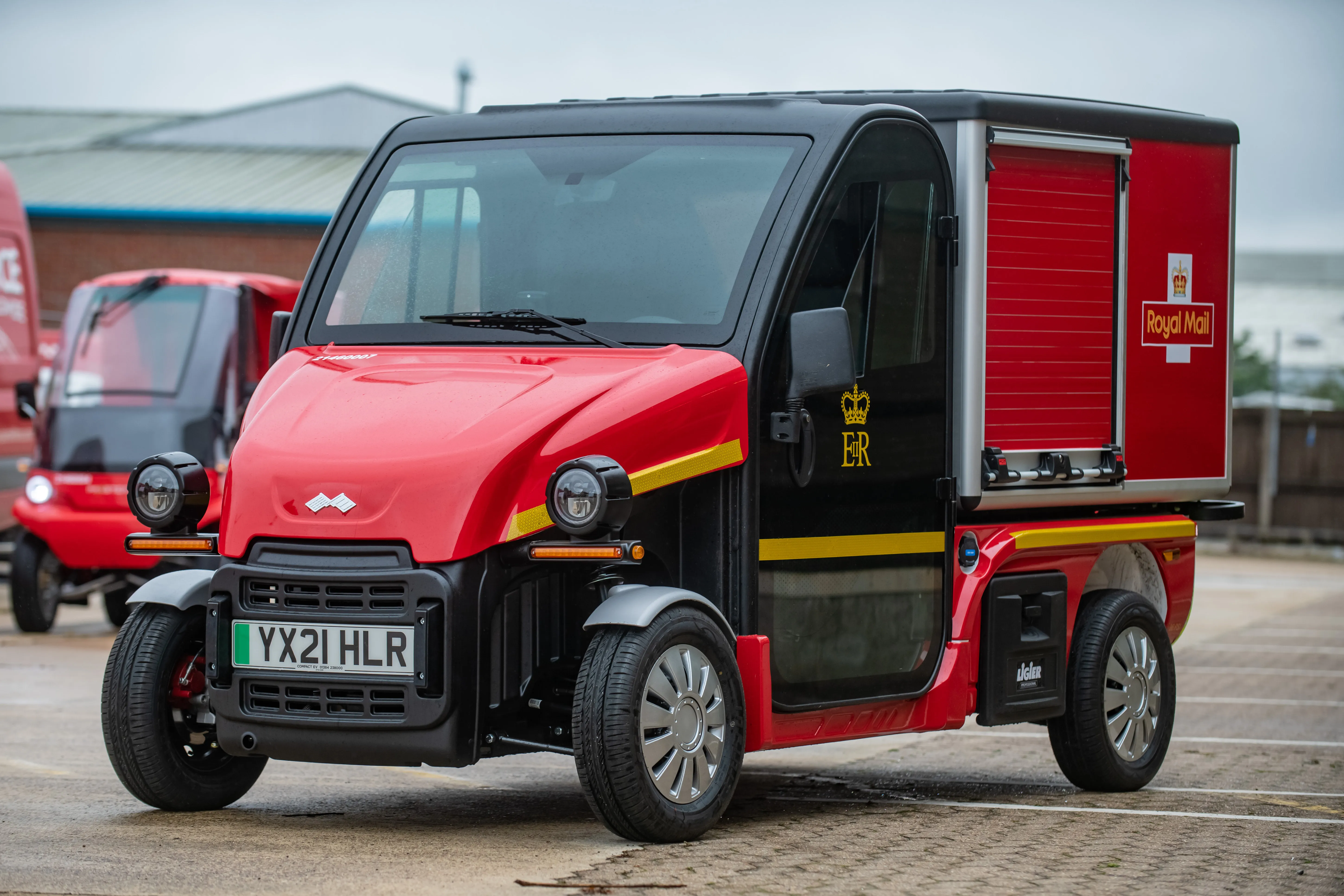
UK-based postal service Royal Mail is to trial two types of micro electric vehicles (MEV) in a bid to further reduce emissions from its operations.
The Paxster Cargo MEV is 2.4m long and just over a metre wide. It has a top speed of 28 mph and a range of 88 miles.
Meanwhile, the Ligier Pulse 4 vehicle is more than 3m long with a width of 1.8m. This vehicle also has a top speed of 28 mph, but a battery range of 74 miles.
Both MEVs will operate in Edinburgh, Crewe, Liverpool, Swindon and London for six months.
The vehicles will run in residential areas as a potential lower carbon alternative to larger vans, which are typically shared by two employees. The trial will assess whether giving them access to separate vehicles could provide greater flexibility on busy routes in a more environmentally friendly way.
The vehicles are charged using a standard three-pin plug, making charging more flexible.
Royal Mail CEO Simon Thompson says: “As our fantastic posties make most deliveries on-foot, this already means we have the lowest reported CO2e per parcel of major UK delivery companies. From drones to electric vehicles, fuel efficient tyres to bio-CNG trucks, we’ll keep on innovating to reduce our environmental impact even further.”










